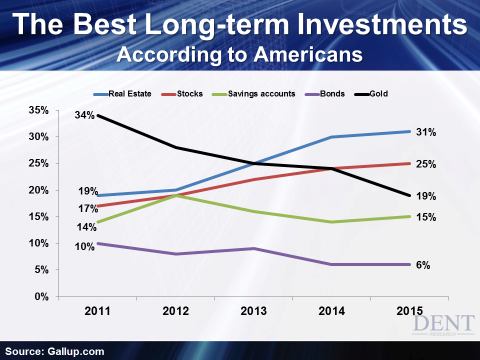As I discussed on Friday, most investors pile into the markets when everyone else does. They have a huge misperception of risk.
They think the longer a market has gone up, the less risk there is… but the truth is that the longer and stronger a market’s advance, the more likely it is to go down, and to go down big time.
The tech bull market from October 1990 to March 2000 resulted in one of the biggest bubble bursts of all time, with the NASDAQ falling 78%.
The most astute investors (AKA the “smart money”) buy at these times when the markets are down, while most investors shun them out of fear.
It follows a natural S-Curve pattern. The 0.1% get in first, then the 1%, then the 10% — which is why these people so dominate wealth and income. They’re willing to take more risk… which is why they pick up the most gains!
Most investors get in somewhere in that 10% to 90% acceleration, not at the beginning. Hence, what they think and do are not good indicators of the best future trends.
To give you some insight into what most Americans consider the best long-term investments, here’s a poll from Gallup, the premier surveyors of American attitudes:

Real estate is currently No. 1 at 31%.
That is the worst long-term investment by our research. And while it may not drop as much as stocks in the crisis ahead, the difference is that most people have mortgages on their real estate, so the falls are more painful!
Simply, we’ve built too many houses, with not enough people to fill them into the future! The Boomers are a larger generation than Generation X which followed, so as they retire, downsize, and eventually die, real estate will fall with them.
Japan has already proven that real estate can go down 60% and not recover even 24 years after its peak. The majority of homeowners who buy a 30-year mortgage today, or even 10 years ago, should not hope to see their investments appreciate.
No. 2 on the list are stocks, at 25%.
As I’ve already explained, most investors get into stocks well after they should have, and are too late getting out. Investors are swooning over stocks now as they’ve reached all-time highs… but that just means they have further to fall!
When this BS, artificially Fed-generated recovery finally fails, those investors will be sorry.
If I had to choose, I’d rather buy stocks than real estate right now, as stocks will actually recover after a major crash, even substantially. I can’t say the same for real estate.
Now on to No. 3… gold!
King Gold was at its peak in 2011 at 34%, but has dropped to 19%. Still, in the poll it’s beating savings accounts and bonds… which in my mind are clearly superior.
Gold does have some redemption in times of crisis, and as I explained in the May issue of Boom & Bust, that could cause it to have a small bump when the next meltdown hits… but ultimately gold has further to fall, though not as much as stocks.
That brings us to the last two: savings accounts and bonds.
Though only 15% of Americans name savings accounts as the best long-term investment, that is where investors should be in this unprecedented bubble, at least to a large extent.
Today, investing in a savings account would allow them to preserve their gains, sleep well at night, and have instant liquidity to buy when everything crashes ahead. But for some reason, no one wants cash today!
Bonds come last at just 6%, and for most people that means safe Treasury or high quality corporate bonds.
Such bonds were the single best investment by far from late 1929 to 1941 — they nearly doubled in value, as stocks and most investments were crucified. These same bonds could be very valuable moving forward through this economic winter season.
To summarize, investors have it totally upside down when it comes to the best long-term investments. It should be: high quality bonds, savings, gold, stocks, then real estate. Not the other way around.
Don’t follow the collective opinion of the majority of Americans. We tend to think there’s strength in numbers, and we’re biased to follow the crowd. But that doesn’t mean the majority gets it right… and in this case, they’re dead wrong!
